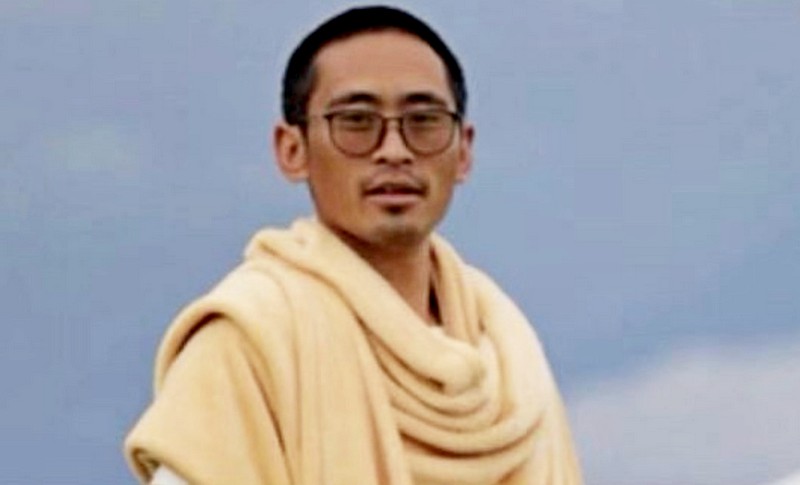Dharamshala, India— A Tibetan monk was recently sentenced to five years in prison by Chinese authorities, for merely sharing the teachings of His Holiness the 14th Dalai Lama and distributing his books.
According to a reliable source, Trinley, a 20-year-old Tibetan monk from the town of Meruma in Ngaba County, northeastern Tibet, was recently sentenced to five years in prison by Chinese authorities for sharing the teachings of His Holiness the 14th Dalai Lama and distributing his books.
Trinley was arrested by Chinese authorities on July 1, 2021. After five months in detention, he was sentenced to five years in prison for allegedly distribution of His Holiness the Dalai Lama’s teachings and books. He was subsequently transferred to Mianyang Prison near Chengdu, Sichuan Province. Trinley was also detained a few times before by Chinese authorities.
Over the past 70 decades, there has been ongoing political repression, social discrimination, economic marginalization, environmental destruction, and cultural assimilation, particularly due to Chinese migration to Tibet which is fueling intense resentment among the people of occupied Tibet.
The communist-totalitarian state of China began its invasion of Tibet in 1949, reaching complete occupation of the country in 1959. Since that time, more than 1.2 million people, 20% of the nation's population of six million, have died as a direct result of China's invasion and occupation. In addition, over 99% of Tibet's six thousand religious monasteries, temples, and shrines, have been looted or decimated resulting in the destruction of hundreds of thousands of sacred Buddhist scriptures.
Until 1949, Tibet was an independent nation in the Himalayas which had little contact with the rest of the world. It existed as a rich cultural storehouse — a unifying theme among the Tibetans — as was their own language, literature, art, and world view developed by living at high altitudes, under harsh conditions, in a balance with their environment.


![Tibet has a rich history as a sovereign nation until the 1950s when it was invaded by China. [Photo: File]](/images/stories/Pics-2024/March/Tibet-Nation-1940s.jpg#joomlaImage://local-images/stories/Pics-2024/March/Tibet-Nation-1940s.jpg?width=1489&height=878)


















